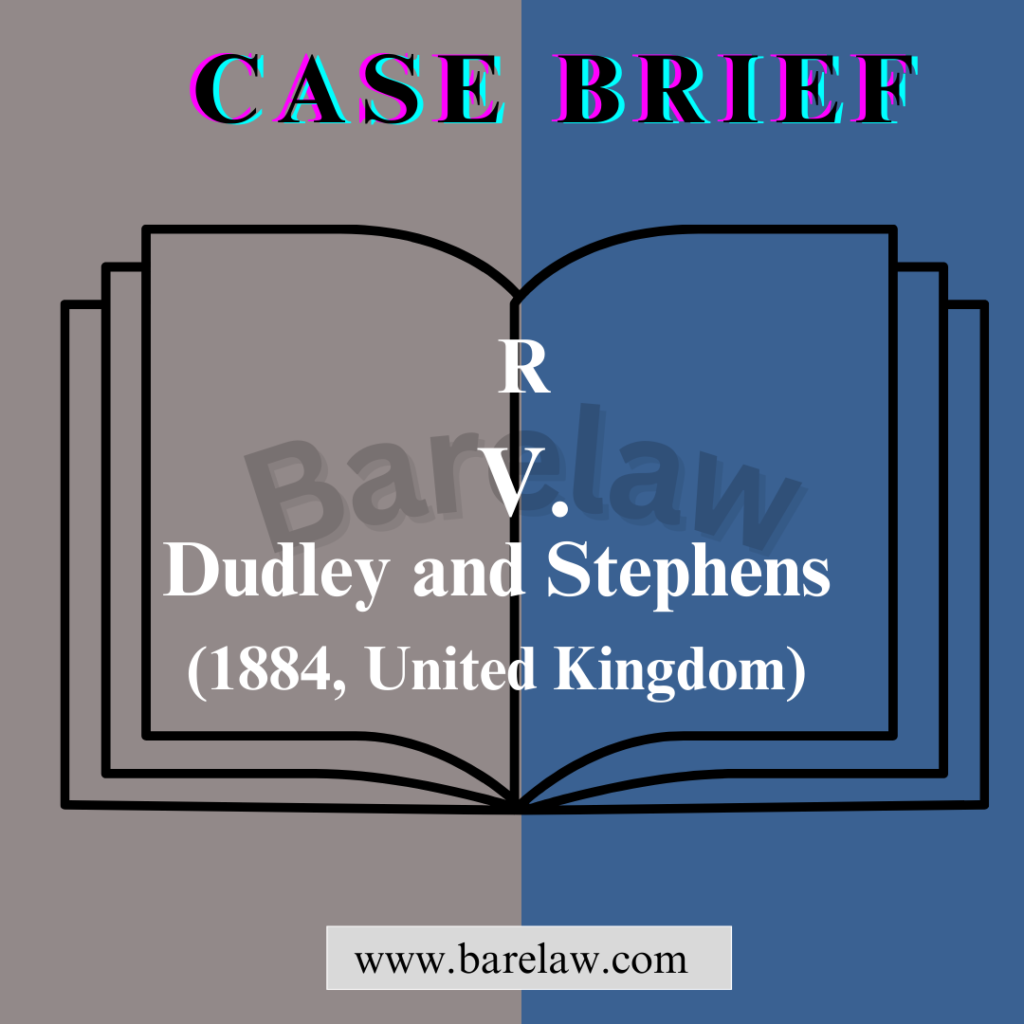
Table of Contents
Survival Dilemma: The Dudley and Stephens Cannibalism Case
Survival Dilemma: The Dudley and Stephens Cannibalism Case
In the annals of legal history, the case of R v. Dudley and Stephens (1884) stands as a haunting reminder of the human capacity for both desperation and moral conflict in dire circumstances. Stranded at sea after a shipwreck, the defendants were forced to make an unthinkable choice – to resort to cannibalism to sustain themselves. This article delves into the heart-wrenching details of the case and explores the ethical, legal, and philosophical questions it raised.
The Maritime Tragedy: A Fight for Survival
The ill-fated journey of the Mignonette began in 1884, when it set sail from Southampton, United Kingdom, bound for Sydney, Australia. Onboard were four crew members: Captain Tom Dudley, First Mate Edwin Stephens, Seaman Brooks, and 17-year-old cabin boy Richard Parker. What was meant to be a routine voyage soon turned into a harrowing ordeal as the ship was wrecked in a violent storm, leaving the crew adrift in a lifeboat thousands of miles from land.
Days turned into weeks, and hope dwindled as the survivors struggled to find food and water. With no rescue in sight and their bodies weakening, desperation took hold. As their dire situation grew increasingly dire, a horrifying choice emerged before them – to kill and consume the weakest member of their group, young Richard Parker, in a last-ditch effort to sustain themselves.
The Moral Dilemma: Survival vs. Ethics
In the midst of their dire circumstances, the crew members were confronted with a moral quandary that would test their humanity to its limits. The case of Dudley and Stephens raises profound questions about the lengths to which individuals are willing to go when faced with the instinctual drive to survive. Is there a point at which survival becomes an acceptable justification for actions that would otherwise be considered heinous and morally repugnant?
The crew’s decision to kill and eat Parker ignited a fierce debate over the balance between individual survival and collective ethics. On one hand, it could be argued that the crew had no other viable option given the dire circumstances they faced. On the other hand, opponents contended that the sanctity of human life and the fundamental principles of morality should never be compromised, even in the face of death.
The Legal Conundrum: Murder on the High Seas
Following their rescue and return to England, Dudley and Stephens found themselves in a courtroom, facing the gravity of their actions. The prosecution contended that the deliberate killing of Richard Parker constituted murder, as it was premeditated and driven by avaricious intent. The defense, however, argued that the dire circumstances and the absence of any alternative options should mitigate their culpability.
The trial’s verdict delivered a sobering judgment on the boundaries of human behavior in extreme situations. Dudley and Stephens were found guilty of murder and sentenced to death, a decision that reinforced the principle that even in the direst of circumstances, the preservation of human life should remain sacrosanct.
Legacy and Ethical Reflections
The Dudley and Stephens case continues to resonate through the corridors of time, prompting discussions on ethical relativism, the fragility of human morality, and the profound impact of extreme circumstances on human behavior. As society progresses, the moral questions raised by this case remain relevant, inviting contemplation on the limits of empathy, compassion, and the choices we make when confronted with life-or-death decisions.
In modern times, the case has been invoked in discussions around survival scenarios, ethical decision-making in extreme situations, and the intricacies of criminal law. It serves as a poignant reminder that the law is not merely a rigid construct but a reflection of societal values and moral principles, subject to interpretation and evolution.
Conclusion
The case of R v. Dudley and Stephens is a chilling testament to the extraordinary lengths individuals may go to in order to survive, and the profound ethical dilemmas such circumstances can create. While the crew’s actions were born out of desperation, the legal proceedings that followed underscored the fundamental importance of preserving human life, even when faced with seemingly insurmountable odds.
As we navigate the complexities of morality and the law, the legacy of Dudley and Stephens invites us to examine our own values and beliefs, challenging us to grapple with the haunting question: What would we do in the face of such a dire and morally fraught decision?





